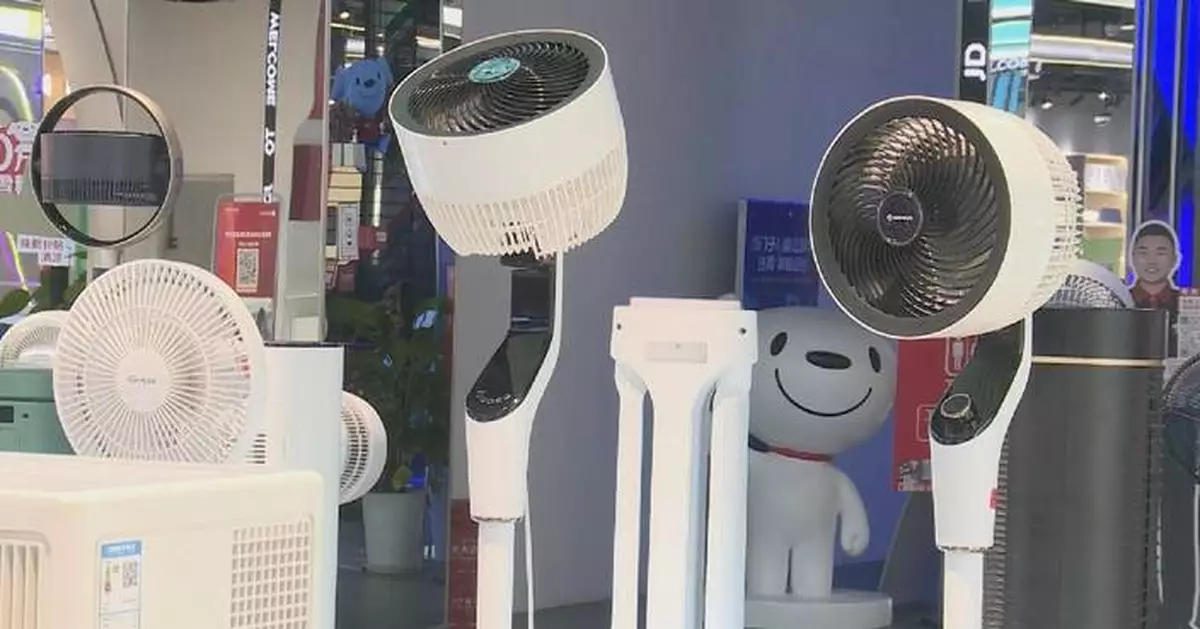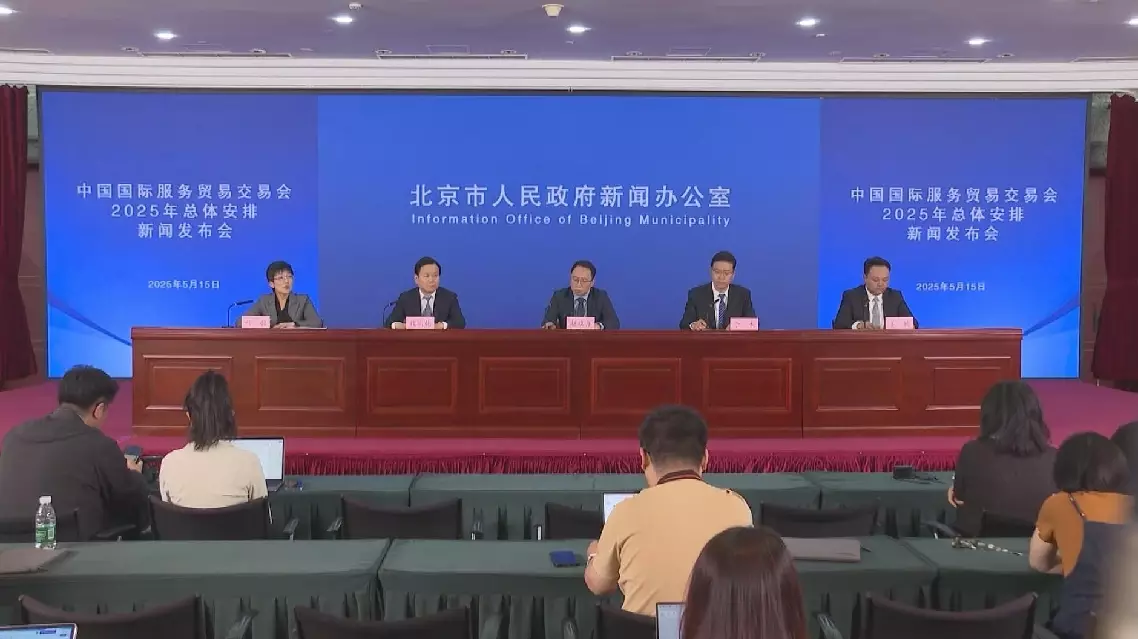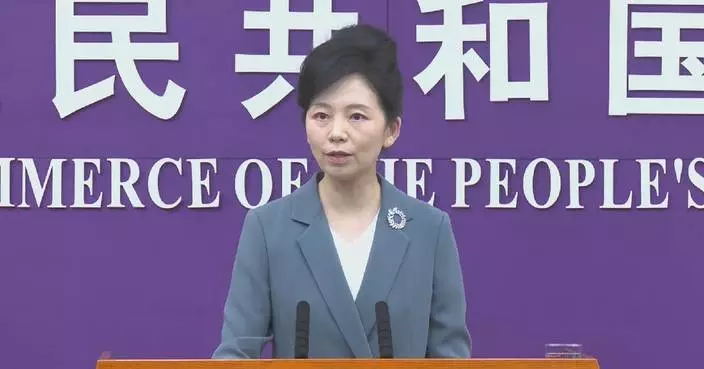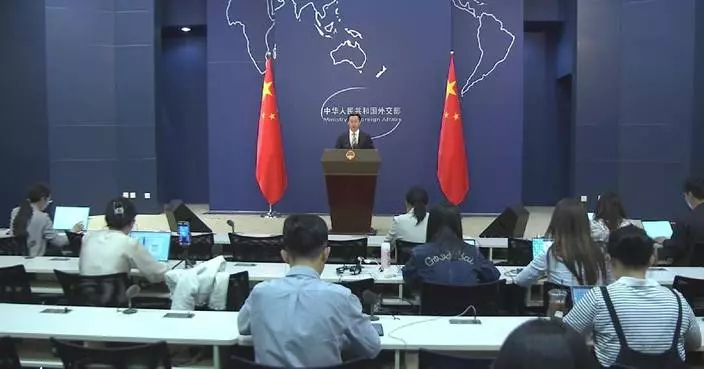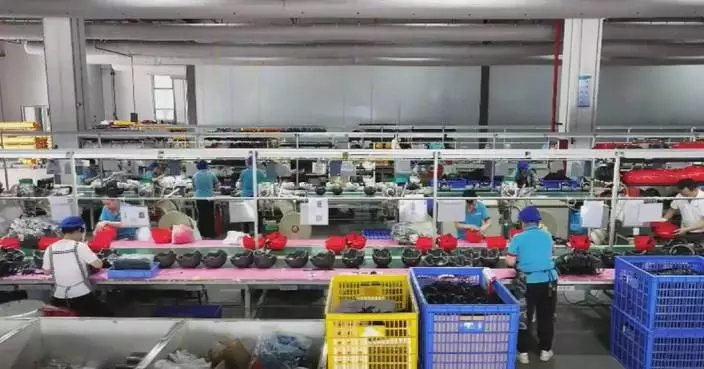China's consumer goods trade-in programs have prompted major companies and e-commerce platforms to offer attractive incentives, driving significant growth in the sales of major home appliances and furniture.
In the city of Chengdu, capital of southwest China's Sichuan Province, a number of home furnishing and appliances companies have jointly launched a whole-home trade-in promotion. One home goods mall's "whole-home renewal" discounts have attracted a steady stream of customers.
"I just moved into a new house, and I'm here mainly to check out the whole-home package deals. The salesperson told me that I can get a discount of around 2,000-3,000 yuan (about 280-420 U.S. dollars) by trading in my old items, which is very helpful for me," said a local resident in the mall.
Beyond these home goods malls, some e-commerce platforms have also expanded their trade-in programs offline. An e-commerce mall in Chongqing Municipality neighboring Sichuan is offering up to 20 percent off for trading in old products, as well as promotions like "buy two, get one free" for home appliances.
"Other recyclers only give me a few dozen yuan for my old fridge, which doesn't seem worth it. But the fridge deal offered by the mall can get me at least 400 yuan for the trade-in, which I think is pretty substantial," said a Chongqing resident named Huang Xi.
Data from the Ministry of Commerce shows that China's online retail sales reached 7.1 trillion yuan in the first half of this year, up 9.8 percent. Digital products, service consumption, and trade-in programs have become new growth points. E-commerce platforms have enabled over 400,000 product trade-ins across more than 300 categories, with fridge, washing machine, mobile phone and TV trade-in growth reaching 82.1 percent, 70.4 percent, 63.9 percent and 54.3 percent, respectively.
"During this year's 618 (June 18) Mid-Year Shopping Festival, with the support of the trade-in programs, over 700 home appliance and furniture brands saw their sales double year-over-year. Air conditioner trade-ins had the highest growth, surpassing 200 percent quarter-over-quarter," said Sun Jian, manager of an e-commerce store in Chongqing.
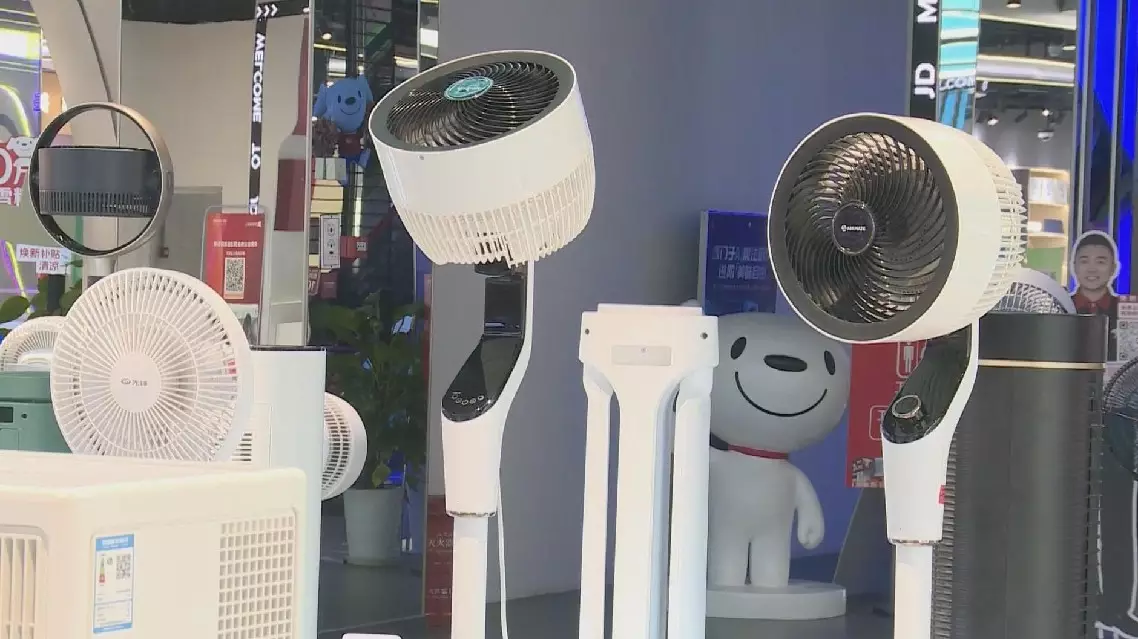
China's trade-in programs boost major home appliance sales


